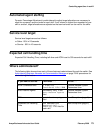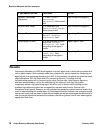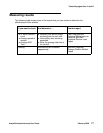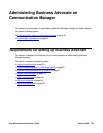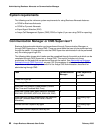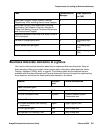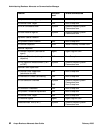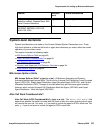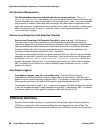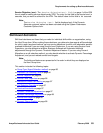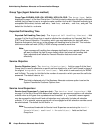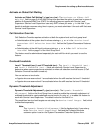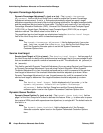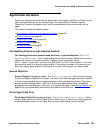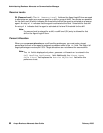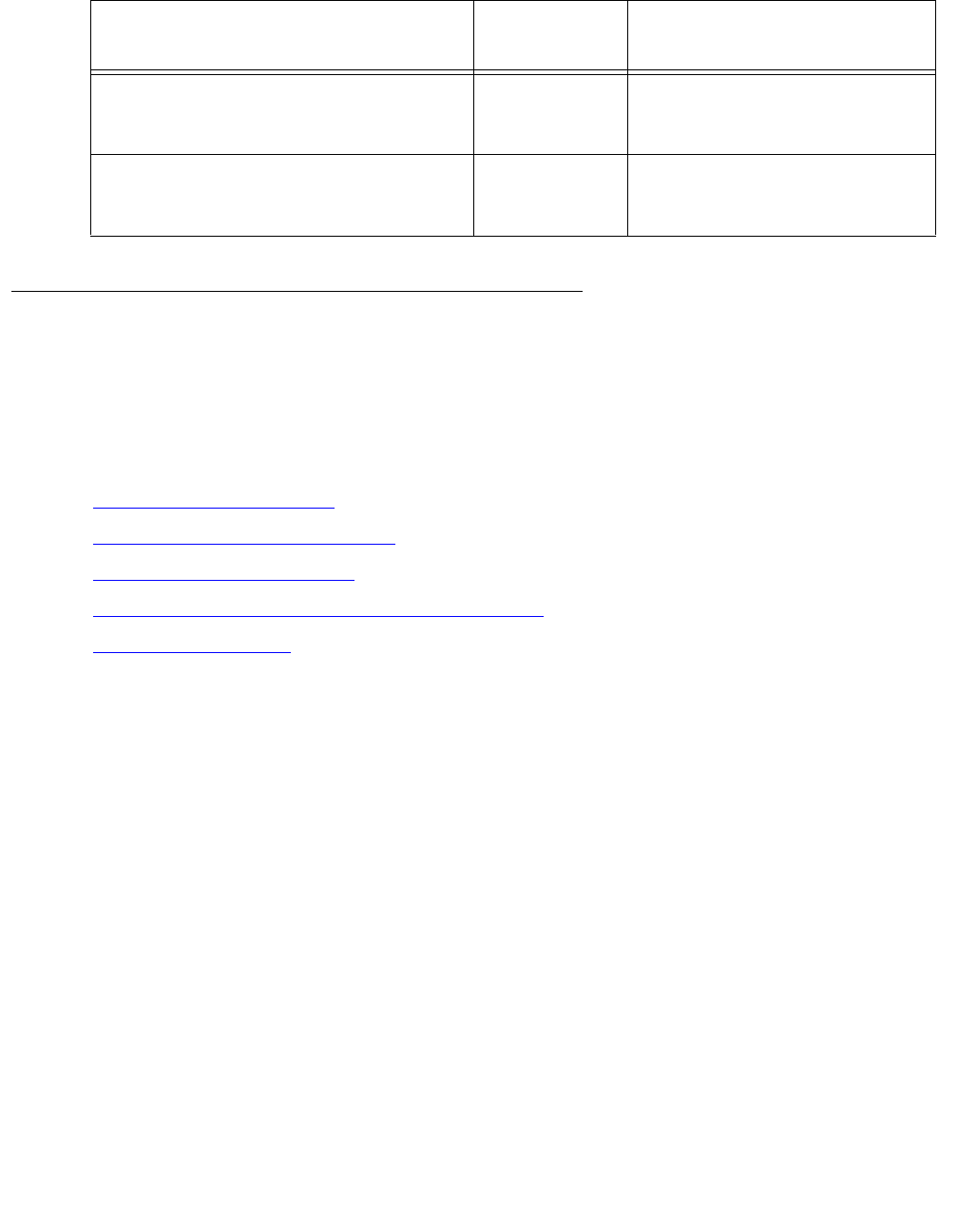
Requirements for setting up Business Advocate
Avaya Business Advocate User Guide February 2006
83
System-level decisions
System-level decisions are made on the Feature-Related System Parameters form. These
high-level decisions, unlike the skill-level or agent-level decisions you make, affect the overall
operation of your contact center.
This section includes the following topics:
● MIA Across Splits or Skills on page 83
● After Call Work Considered idle? on page 83
● Call Selection Measurement on page 84
● Service Level Supervisor Call Selection Override on page 84
● Auto Reserve Agents on page 84
MIA Across Splits or Skills
MIA Across Splits or Skills? y (yes) or n (no) - All Business Advocate and Dynamic
Advocate features apply across skills. This is true for Universal Call Distribution-Least Occupied
Agent (UCD-LOA), Expert Agent Distribution-Least Occupied Agent (EAD-LOA), and Percent
Allocation Distribution (PAD). Changes to the field affect only pre-Advocate agent selection
features, which include Universal Call Distribution-Most Idle Agent (UCD-MIA) and Expert
Agent Distribution - Most Idle Agent (EAD-MIA).
After Call Work Considered idle?
After Call Work (ACW) Considered Idle? y (yes) or n (no) - The After Call Work? field
determines whether the switch includes after call work in work time when deciding which agent
will receive the next call. You enter n if you want to include the agent’s ACW in work time. You
enter y if you do not want to include the agent’s ACW in work time.
Call Handling Preference (call
selection method: Greatest Need, Skill
Level, Percent Allocation)
Agent Agent LoginID form
Group Type (agent selection method:
UCD-MIA, EAD-MIA, UCD-LOA,
EAD-LOA, PAD)
Skill Hunt Group form
Feature Decision
level
Where administered



